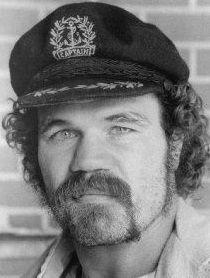How Old Is Randall 'Tex' Cobb? Randall 'Tex' Cobb Birthday
Randall 'Tex' Cobb was born on May 7, 1950 and is 74 years old now.
Birthday: May 7, 1950
How Old - Age: 74
Randall 'Tex' Cobb Death Fact Check
Randall is alive and kicking and is currently 74 years old.
Please ignore rumors and hoaxes.
If you have any unfortunate news that this page should be update with, please let us know using this form.
Randall 'Tex' Cobb - Biography
Randall Craig "Tex" Cobb (born May 7, 1950) is an American former boxer who competed in the heavyweight division. Widely considered to possess one of the greatest chins of all time, Cobb was a brawler who also packed considerable punching power. He began his fighting career in full contact kickboxing in 1975 before making the jump to professional boxing two years later. He challenged Larry Holmes for the WBC World Heavyweight Championship in November 1982, losing a one-sided unanimous decision, and took wins over notable heavyweights of his era such as Bernardo Mercado, Earnie Shavers and Leon Spinks.
After nine straight wins as a kickboxer, Cobb lost his first two amateur bouts. In his professional-boxing debut on January 19, 1977, in El Paso, he knocked out Pedro Vega. He went on to win 13 straight fights by 1979, all by knockout. Cobb was a fighter who had hitting power, as shown by his eighth-round knockout victory over Earnie Shavers in 1980. He lost his two following bouts to Ken Norton and Michael Dokes, respectively, but soon bounced back to earn a shot at Larry Holmes' WBC World Heavyweight Championship. On November 26, 1982, at Houston's Astrodome, Cobb was defeated in a unanimous decision by Holmes, who won all 15 rounds on two of three scorecards. The bloody one-sidedness of the fight, which came 13 days after the bout between Ray Mancini and Duk Koo Kim that led to Kim's death four days later due to brain trauma, horrified sportscaster Howard Cosell so much that he vowed never to cover another professional match, which Cobb jokingly referred to as his "gift to the sport of boxing." When prodded further regarding Cosell's remarks, Cobb observed, "Hey, if it gets him to stop broadcasting NFL games, I'll go play football for a week, too!" When asked if he would consider a rematch, Cobb replied that he did not think that Holmes would agree, as Holmes' "hands could not take it." In an interview after the Holmes fight, he was asked how he could fight someone whose arms were a foot longer than his were, to which he replied, "Oh, it seemed that way to you too?"
He made a brief return to kickboxing on May 5, 1984, to challenge John Jackson for the Professional Karate Association United States Heavyweight title in Birmingham, Alabama, losing on points. Between late 1984 and 1985, he lost four straight fights, the last of which was a knockout at the hands of Dee Collier, the only time he was ever KO'd. After a two-year hiatus, he made a return to the ring and went on a 20-fight undefeated streak against lightly regarded opponents (including a win over past-his-prime former champ Leon Spinks in 1988) before retiring again rather suddenly in 1993. A 1993 Sports Illustrated article alleged that Cobb had participated in a fixed fight with Sonny Barch and had used cocaine with Barch and promoter Rick "Elvis" Parker before and after the fight. Cobb said the magazine libeled him, and he sued for US$150 million. In 1999, a jury awarded Cobb $8.5 million in compensatory damages and $2.2 million in punitive damages. However, the verdict was overturned in 2002 by a federal appeals court, which said that the article was not published with "actual malice". The magazine did not interview the referee and other ringside officials who were at the match, which tends to show that the magazine "might not have acted as a prudent reporter would have acted", the ruling stated. "But the actual malice standard requires more than just proof of negligence".
Cobb lives in Philadelphia, and maintained a friendship with Philadelphia Daily News columnist Pete Dexter, who frequently commented on boxing. In a notorious 1981 Grays Ferry incident, Cobb came to the defense of Dexter, who during the course of a bar brawl, was severely beaten. Cobb rescued him and endured a broken arm, costing him a scheduled fight with Muhammad Ali. Ali then fought Trevor Berbick and lost.
Cobb's eldest son Bo was killed in an accident in early 1999. His younger son Joshua pursued a short career as a boxer.








